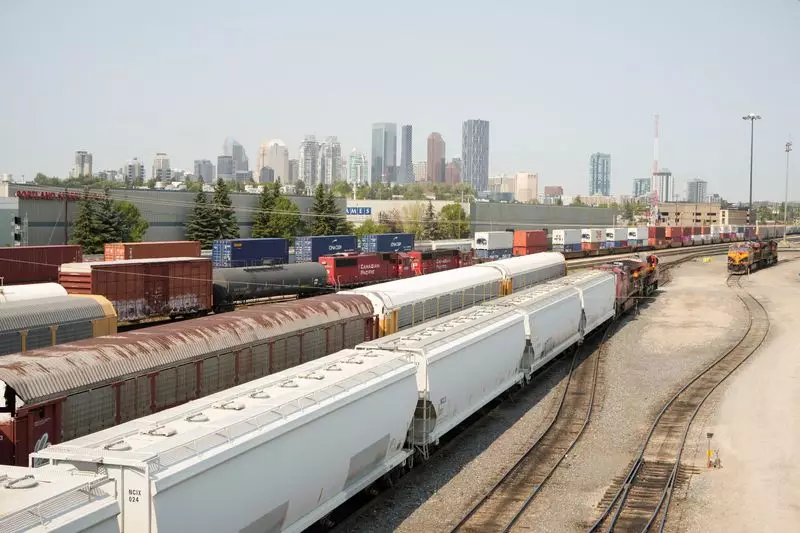In a recent development, the Canada Industrial Relations Board ordered a halt to work stoppages at the country’s largest railways, Canadian National Railway (CNR) and Canadian Pacific (CPKC) Kansas City. This decision signifies an end to a disruptive service disruption that was threatening to have a significant impact on Canada’s export-driven economy. The ruling came after Canada requested the labor tribunal to intervene in the impasse affecting more than 9,000 Teamsters members.
The Teamsters Union expressed disappointment with the ruling, stating that workers’ rights were significantly diminished. They have announced their intention to appeal the decision in federal court. The labor board’s decision to impose binding arbitration on the parties and continue with existing contracts until new agreements are reached has raised concerns among union representatives. They fear that this sets a dangerous precedent where large companies can disrupt operations to force government intervention.
The decision to halt work stoppages will see the resumption of railway operations at CPKC, where workers had been both locked out and on strike. Despite CPKC’s request for employees to return earlier, workers have decided to resume operations by 00:01 ET on Monday. The railway network is expected to take several weeks to fully recover from the disruption, with additional time needed for supply chains to stabilize.
Concerns from Business and Industry Groups
The disruption in railway operations could have had a significant impact on various sectors, particularly agriculture and farming industries in both Canada and the United States. Industry representatives have expressed relief at the government’s intervention, highlighting the importance of seamless cross-border trade for farmers. The decision to refer the matter to the Canada Industrial Relations Board has been seen as a necessary step to prevent further economic damage.
The ongoing labor disputes at CN and CPKC have centered around issues such as scheduling, shift duration, and worker pay. While the railway companies have pushed for longer shifts and increased flexibility, the Teamsters union is advocating for fair working conditions through bargaining. The decision to impose binding arbitration could have far-reaching implications for future labor negotiations in Canada.
The Canada Industrial Relations Board’s decision to halt work stoppages at the country’s largest railways has brought temporary relief to businesses and industries affected by the disruption. However, the implications of this ruling on labor relations and government intervention in labor disputes remain to be seen. As stakeholders continue to navigate the challenges of collective bargaining and workplace rights, finding a balanced approach that protects both workers and the economy will be crucial in ensuring long-term stability in the Canadian labor market.

